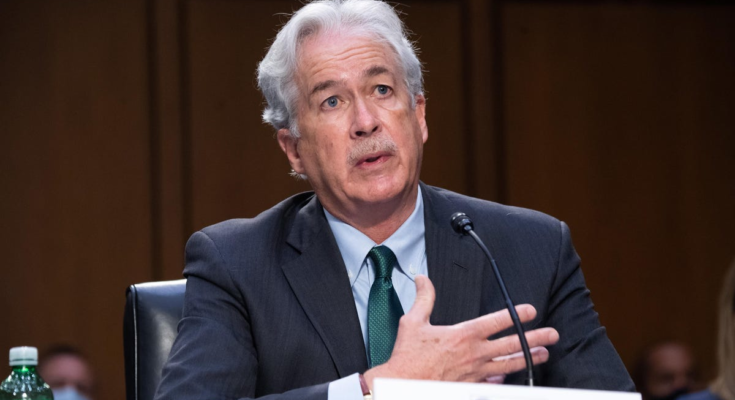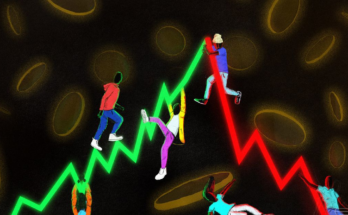
In a disclosure that should surprise no one, the head honcho at the CIA has confirmed that the intelligence agency has multiple projects related to cryptocurrency.
Rumors—often not entirely serious—have long circulated that the anonymous creators of flagship cryptocurrency bitcoin could have ties to the intelligence community, while a more common sentiment among crypto fans is that the U.S. government is lurking in the background, waiting to flex its muscle over the whole shebang. Yet, as flagged by Motherboard, on Monday CIA Director William Burns characterized the agency’s involvement to attendees at the Wall Street Journal’s CEO Summit as relatively recent.
“This is something I inherited,” Burns told the audience. “My predecessor had started this, but had set in motion a number of different projects focused on cryptocurrency and trying to look at second- and third-order consequences as well and helping with our colleagues in other parts of the U.S. government to provide solid intelligence on what we’re seeing as well.”
That the CIA is interested is the opposite of shocking, whatever one thinks of the cryptocurrency world’s libertarian ethos. After all, cryptography, which the blockchain technology that powers cryptocurrencies is based on, has always been of extreme interest to the military and intelligence community. It’s the key to both safeguarding one’s own operations and gaining intelligence on adversaries. The prying eyes of the nation’s spies have no doubt been watching as cryptocurrency exploded from niche status to a kind of world-spanning, pseudo-anonymous shadow financial network.
Internal National Security Agency documents from 2013 leaked by Edward Snowden showed that “tracking down” users of bitcoin and other cryptos was one of the agency’s top priorities, spurring some worries that NSA data was secretly being used in prosecutions like that of Silk Road kingpin Ross Ulbricht (which the FBI has denied). Cryptocurrency is a valuable tool to actors the CIA might be helping keep track of, such ransomware gangs capable of causing chaos at large institutions and targeting infrastructure—which are often based abroad and sometimes suspected to be tied to nation-state actors. Ransomware is a type of malware that maliciously encrypts file systems to be irrecoverable without knowledge of a specific cryptographic key, with the operator typically demanding the victim pay a ransom in the form of cryptocurrency to regain access to the targeted system.
For example, a May 2021 cyberattack on the Colonial Pipeline managed to cause gas shortages and a minor panic across the Eastern Seaboard. The gang that infected the pipeline operator’s systems with ransomware is believed to be based in Russia. The attack was at least partially the result of decades-long negligence on infrastructure cybersecurity the feds suddenly appear to be paying a lot more attention to. The U.S. military Cyber Command recently disclosed that it has taken unspecified offensive action against ransomware gangs targeting U.S. companies, raising some concern that it is militarizing the response to cybercrime.
Burns specifically mentioned ransomware during his remarks at the conference, saying cryptocurrency was one of the ways malicious actors that have otherwise hid their tracks can be identified.
Cryptocurrency “could have enormous impact on everything from ransomware attacks, as you mentioned,” Burns told the audience. “Because one of the ways of getting at ransomware attacks and deterring them is to be able to get at the financial networks that so many of those criminal networks use and that gets right at the issue of digital currencies as well.”
As Motherboard noted, cryptocurrency aficionados on Twitter alerted to Burns’s comments by a tweet from far-right financial blog ZeroHedge, a perennial font of alarmist takes and factually dubious information, took the opportunity to weigh in.
Most didn’t seem very concerned. Crypto Cobain, a Twitter account with over 530,000 followers, tweeted a joke thread speculating what projects might be CIA operations. Another bitcoin promoter named Spencer Schiff argued that if the CIA invented bitcoin, it wouldn’t seriously impact his views on it, as the agency has clearly lost control of it. Other Twitter users used the remarks as fodder for jabs at crypto projects they didn’t like, suggesting they were CIA projects. A few conspiracy-minded users floated that idea that the CIA uses bitcoin or other digital currencies to fund black projects.



